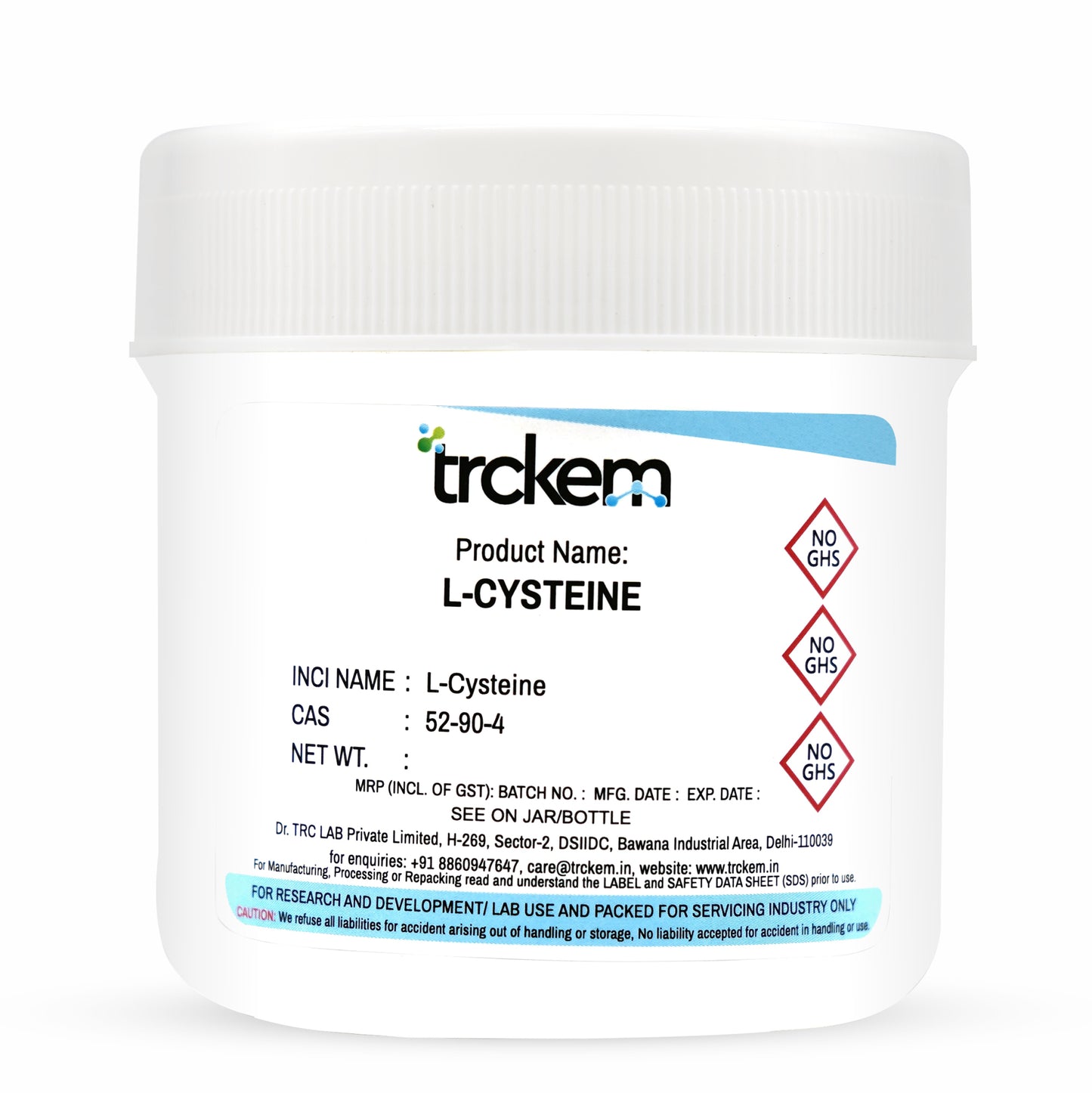
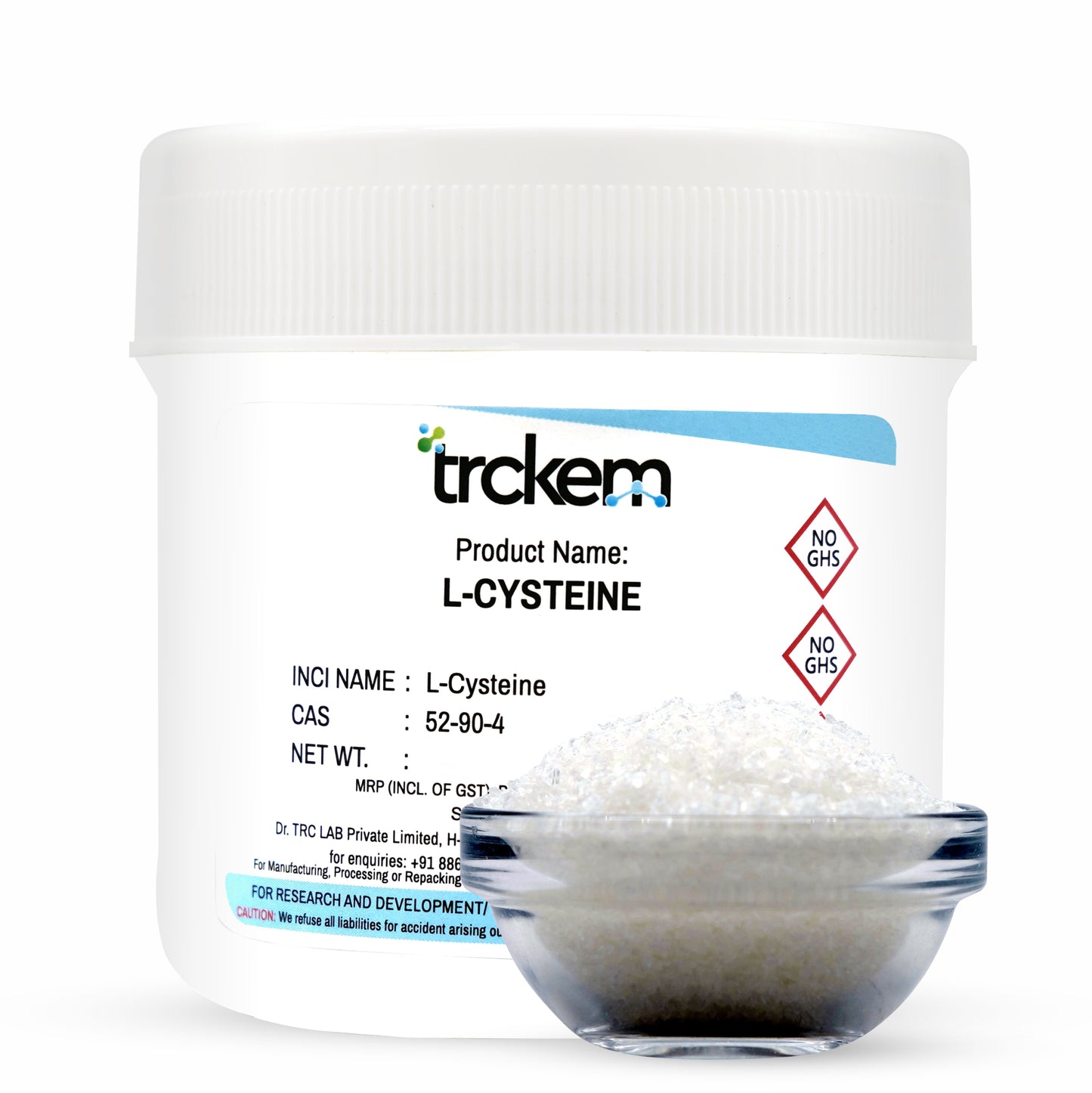
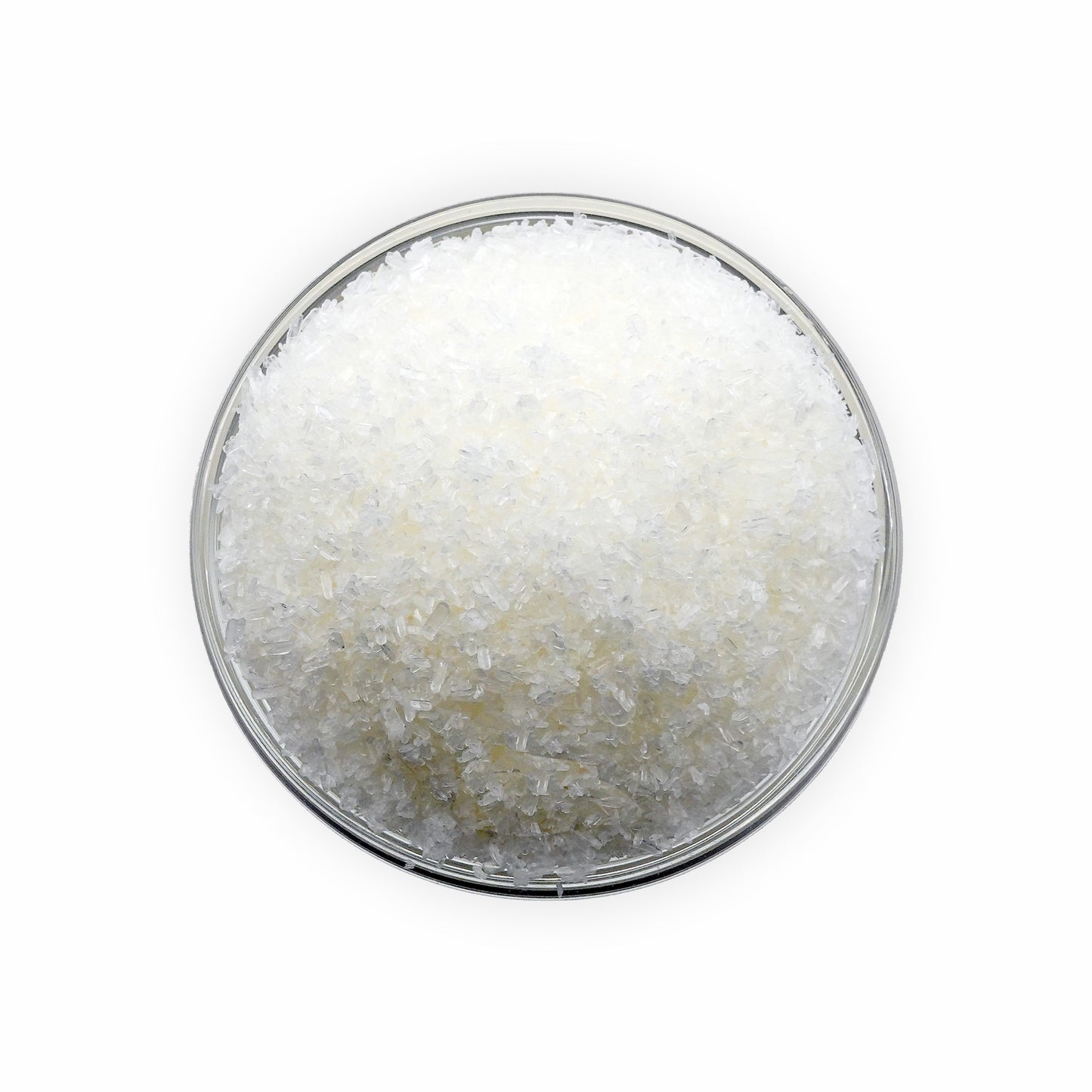
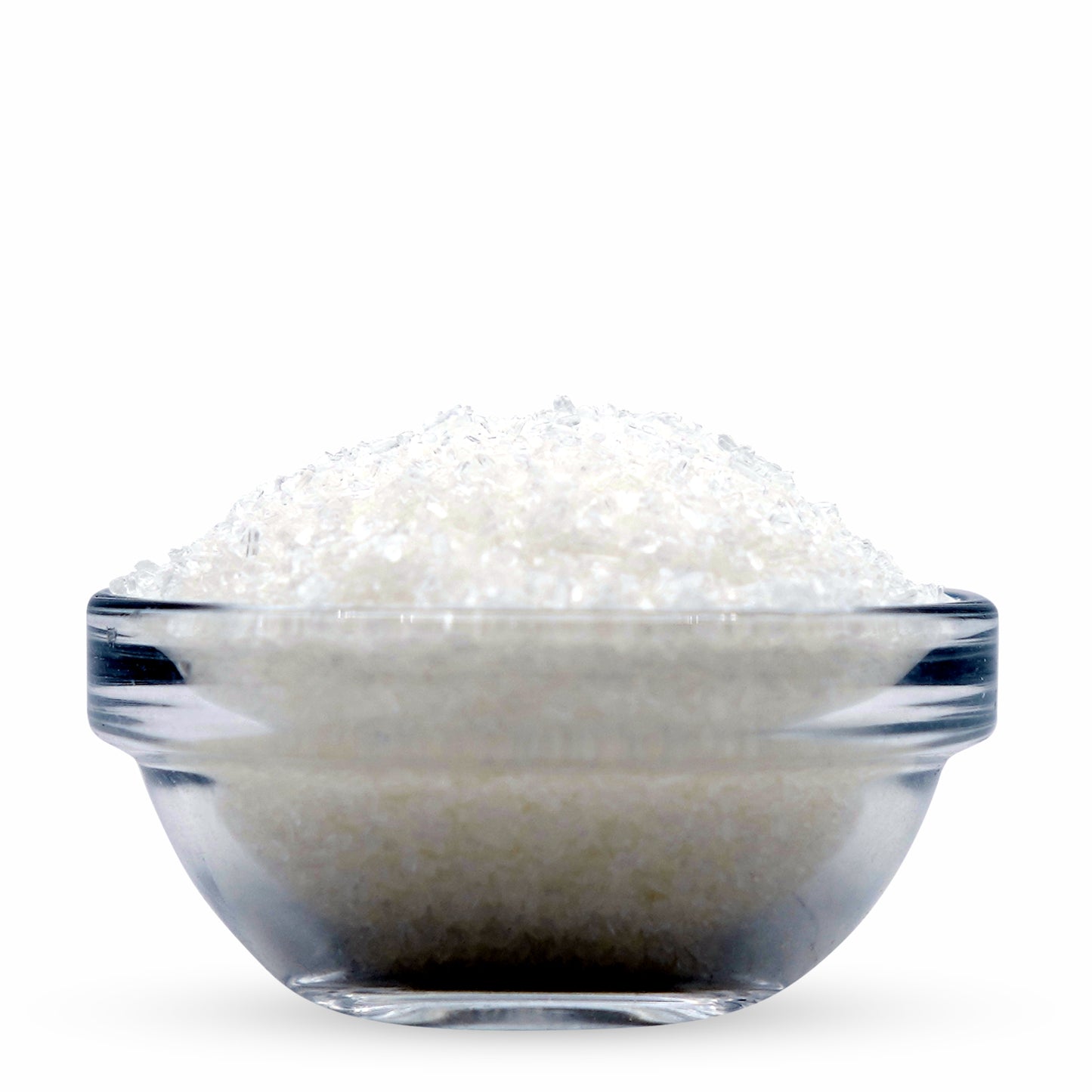
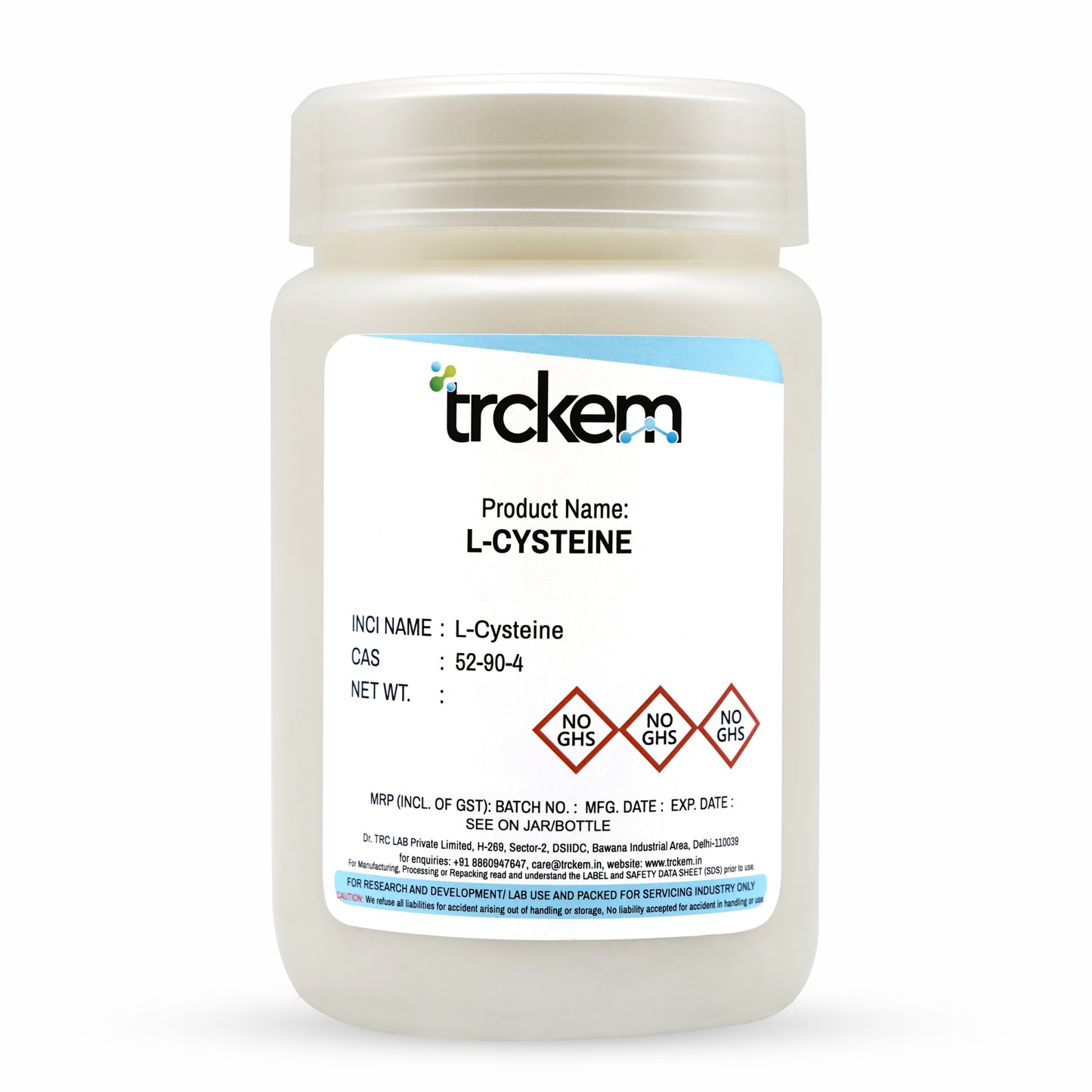
General Description
L-Cysteine is a naturally occurring amino acid widely used in the cosmetic, pharmaceutical, and food industries. Known for its powerful antioxidant and skin-repairing properties, L-Cysteine plays a crucial role in skin brightening, hair strengthening, and anti-aging formulations. It is available for bulk purchase, wholesale supply, and private label manufacturing, making it a popular ingredient among cosmetic manufacturers.
Uses in the Cosmetics Industry
L-Cysteine is a key ingredient in many personal care and beauty products, including:
✔ Skin Lightening Creams & Serums – Reduces melanin production, helping to brighten skin tone and fade dark spots.
✔ Anti-Aging Products – Supports collagen production, improving skin elasticity and reducing fine lines.
✔ Hair Care Products – Strengthens hair strands, promotes growth, and enhances shine.
✔ Nail Treatments – Helps fortify brittle nails, reducing breakage and splitting.
✔ Professional Dermatological Formulations – Used in advanced skincare treatments for pigmentation control.
Side Effects & Hazards
Although L-Cysteine is generally safe, some potential concerns include:
⚠ Skin Sensitivity – May cause irritation or allergic reactions in some individuals.
⚠ Strong Odor – Has a sulfur-like smell that may require masking in formulations.
⚠ Oxidation Sensitivity – Can degrade if not stored properly, affecting its efficacy.
CAS Number: 52-90-4
INCI: L-Cysteine HCL
Composition: L-Cysteine HCL is an amino acid composed of a thiol (-SH) group attached to the side chain of the amino acid cysteine. It is one of the building blocks of proteins and peptides.
Purity Grade: No purity grade applicable
Appearance: L-Cysteine HCL typically appears as a white to off-white crystalline powder or colorless crystals.
Solubility: L-Cysteine HCL is sparingly soluble in water but more soluble in alkaline solutions. It is also soluble in dilute mineral acids and alkalis.
Preservation: L-Cysteine HCL should be stored in a cool, dry place away from heat and moisture to prevent degradation. It should also be protected from exposure to air and light.
Storage: Store in a closed container at a dry place at room temperature
Raw Material Source: L-Cysteine HCL can be obtained from various sources, including animal hair (such as poultry feathers), bacterial fermentation, or chemical synthesis from precursor molecules.
Manufacture: L-Cysteine HCL can be manufactured through various methods. One common method involves the hydrolysis of keratin-containing materials, such as poultry feathers or human hair, followed by purification to isolate L-Cysteine HCL. Another method involves microbial fermentation using certain bacteria or yeast strains capable of producing L-Cysteine HCL.
Animal Testing: Not animal tested
GMO: GMO-free (does not contain plant-derived components)
Vegan: Does not contain animal-derived components
Proposition: L-CYSTEINE HCL complies with relevant regulations and guidelines
Warning: Avoid contact with eyes. In case of contact, rinse thoroughly with water. Use appropriate protective equipment when handling. Keep out ofreach of children.
THE STORY OF L-CYSTEINE

L-Cysteine: The Essential Amino Acid for Strength, Repair & Hair Conditioning
L-Cysteine is a naturally occurring sulfur-containing amino acid widely used in haircare and skincare for its repairing, strengthening, and antioxidant properties.
It boosts keratin structure, improves hair strength, supports skin renewal, and enhances protein-based formulations.

A Bio-Active Amino Acid Derived Through Fermentation & Purified for Cosmetic Use
Cosmetic-grade L-Cysteine is commonly produced by enzymatic hydrolysis or microbial fermentation followed by purification.
Key characteristics:
• Contains natural thiol (-SH) groups
• Highly reactive toward keratin bonds
• Water-soluble, bio-compatible, and stable in cosmetic systems
TRCkem offers high-purity L-Cysteine suitable for advanced haircare and skincare formulations.

Repair. Strengthen. Revitalize.
L-Cysteine provides multiple high-performance cosmetic benefits:
✅ Reinforces keratin structure for stronger hair
✅ Helps reduce breakage & split ends
✅ Supports hair smoothing & anti-frizz formulations
✅ Provides antioxidant protection in skin & hair
✅ Enhances protein-rich masks, treatments, and serums
Used in: keratin treatments, hair masks, anti-breakage shampoos, scalp serums, strengthening conditioners & skin repair formulations.

Highly Functional & Safe at Controlled Cosmetic Levels
• Typical use level: 0.1–2% (haircare), 0.05–0.5% (skincare)
• Add to water phase; may require pH adjustment
• Compatible with proteins, amino acids & conditioning agents
• Avoid excessive heat to preserve activity
• Non-irritating and skin-safe at cosmetic levels
• Store in cool, dry, airtight conditions (sensitive to oxidation)
• Ideal for both rinse-off & leave-on formulations
Formulator’s Queries, We Answered
1. What is L-Cysteine?
L-Cysteine is a naturally occurring amino acid that plays a vital role in protein formation. It contains sulfur, making it essential for keratin production, which is crucial for maintaining healthy hair, skin, and nails.
2. What is the CAS Number of L-Cysteine?
The CAS Number for L-Cysteine is 52-90-4.
3. What is the INCI Name of L-Cysteine?
The INCI (International Nomenclature of Cosmetic Ingredients) name for L-Cysteine is L-Cysteine.
4. What are the benefits of L-Cysteine in personal care products?
L-Cysteine offers multiple benefits in cosmetics and personal care, including:
Hair Care: Strengthens hair, reduces breakage, and improves elasticity.
Skin Care: Acts as an antioxidant, helping to protect against oxidative stress and skin aging.
Nail Care: Promotes keratin formation, leading to stronger and healthier nails.
5. How is L-Cysteine used in cosmetics and personal care formulations?
L-Cysteine is used in various formulations such as:
Shampoos & Conditioners: To enhance hair strength and reduce damage.
Skin Serums & Creams: As an antioxidant to support skin health.
Nail Treatments: To improve nail resilience and prevent brittleness.
6. Is L-Cysteine safe for use in cosmetics?
Yes, L-Cysteine is generally recognized as safe when used in recommended concentrations in personal care products. However, manufacturers should follow regulatory guidelines and conduct stability and compatibility testing before formulation.
7. Can L-Cysteine be sourced from natural origins?
Yes, L-Cysteine can be derived from both synthetic and natural sources, including plant-based fermentation processes and animal-derived sources like keratin hydrolysis. Vegan and synthetic alternatives are available for formulations requiring plant-based ingredients.
8. Are there any regulatory restrictions on L-Cysteine use in cosmetics?
Regulatory guidelines for L-Cysteine vary by region. It is important for formulators to check compliance with EU Cosmetic Regulation (EC) No 1223/2009, FDA guidelines, and other international standards before use.
9. Can L-Cysteine be used in hair straightening products?
Yes, L-Cysteine is commonly used in hair smoothing and straightening treatments due to its ability to restructure disulfide bonds in hair, making it more manageable.
10. Is L-Cysteine compatible with other cosmetic ingredients?
L-Cysteine is generally compatible with most hair and skincare ingredients. However, formulators should avoid combining it with strong oxidizing agents, as it may degrade its effectiveness.






